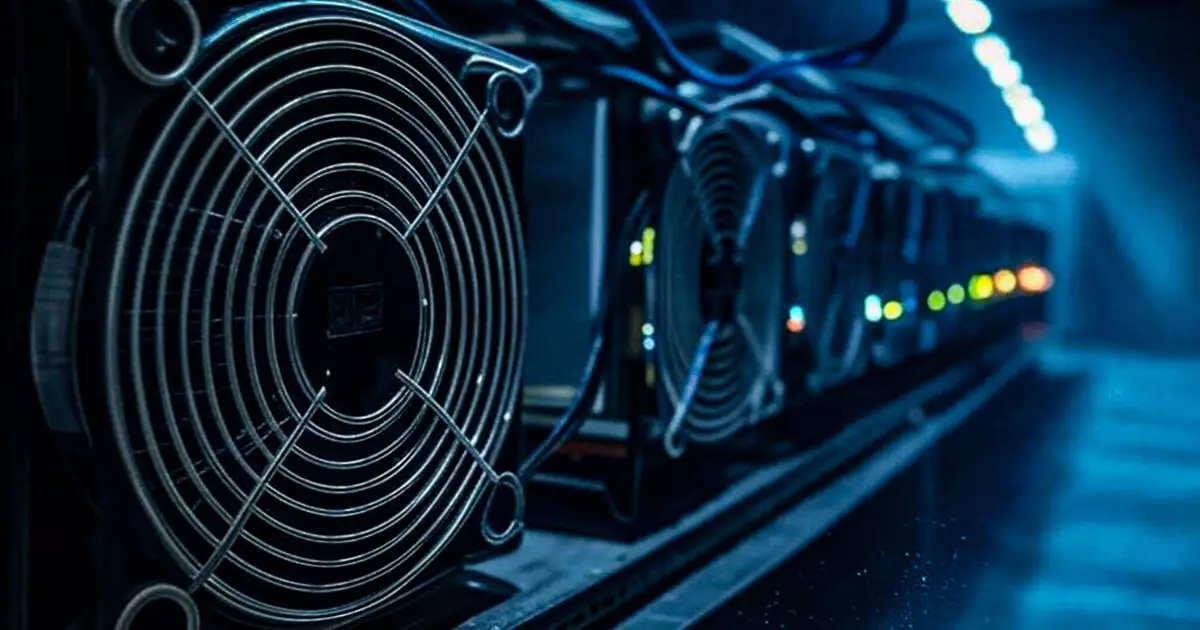The growing pains of the cryptocurrency mining industry in the United States are coming to the forefront as miners face significant hurdles related to the importation of specialized mining hardware. These challenges stem primarily from increased scrutiny on shipments of Application-Specific Integrated Circuit (ASIC) mining rigs, predominantly sourced from China. With geopolitical tensions and regulatory changes intertwining, the future of US-based crypto mining seems precarious.
Recent reports indicate that US Customs and Border Protection (CBP) has ramped up inspections on a wide array of airlifted Bitcoin mining machines, particularly those from Bitmain, a dominant player in the global market. This surge in oversight began approximately three months ago, coinciding with the US Commerce Department’s blacklisting of Xiamen Sophgo Technologies—a firm linked with Bitmain. The crux of these inspections revolves around allegations that such companies contribute to China’s ambitions in advanced chip technology. Consequently, many US miners find their essential equipment caught in a web of delays, stalling operations and potentially crippling growth in this booming market.
Further complicating the landscape is a new wave of tariffs placed on Chinese imports, with President Trump announcing an additional 10% levy shortly before the delays became widespread. This increase in trading costs is expected to reverberate throughout the mining industry, making it especially challenging for operators reliant on cutting-edge equipment from Bitmain.
For miners accustomed to the rapid expansion of their enterprises, the current import delays present significant operational hurdles. Industry insiders have reported that specific companies, such as an Oklahoma-based operation housing 2,000 rigs, have faced pronounced delays. The potential for requiring certificates of origin now adds another layer of complexity. Custom inspections are no longer just cursory checks; the scrutiny has escalated to the point where entire shipments are being stalled, threatening the timely execution of mining operations.
Luxor Technology’s Chief Operating Officer, Ethan Vera, highlighted how these customs issues have directed federal attention toward shipments marked by Bitmain. Such practices render the importation process more precarious, and the fears outlined by industry leaders suggest that, if the pace of inspections continues, it might lead to a severe contraction in new hardware imports.
Taras Kulyk, CEO of Synteq Digital, noted that increased tariffs could effectively freeze the inflow of next-generation hardware into the US, resulting in many mining projects grinding to a halt. Without access to new ASIC rigs, many operations may find themselves unable to compete globally, leading to industry consolidation or, worse, complete shuttering.
The current market dynamics are further complicated by the emergence of competition. While Bitmain has long controlled around 90% of the global ASIC mining rig market, alternatives such as MicroBT from China and Auradine from California are starting to gain traction. This shift could provide options for US miners who find Bitmain’s machines subject to significant risk and uncertainty due to recent regulatory pressures.
Moreover, the US mining industry experienced remarkable growth in the last half-year prior to these challenges. However, as evidenced by data compiled by CBP, the weight of imported Bitcoin mining rigs saw a drastic decline—nearly 65% year-over-year in January 2025. This significant drop may weaken the operational capacity of miners, diminishing their long-term viability in the sector, which is poised to expand amid increasing interest in cryptocurrencies.
Amid this turbulence, Bitmain has taken proactive steps by establishing a domestic production line in the US. Introducing the Antminer S21 Pro, produced locally, could not only streamline their operations but also alleviate some of the burdens associated with import delays. Such initiatives highlight the importance of strategic adaptability in the face of external pressures.
Nonetheless, while this domestic shift may offer some respite, the question remains whether it is enough to offset the layered consequences arising from regulatory obstructions and growing competition. As the landscape continues to evolve, US miners must navigate these uncharted waters thoughtfully, potentially reevaluating their operational strategies to safeguard their investments and future in the cryptocurrency market.

